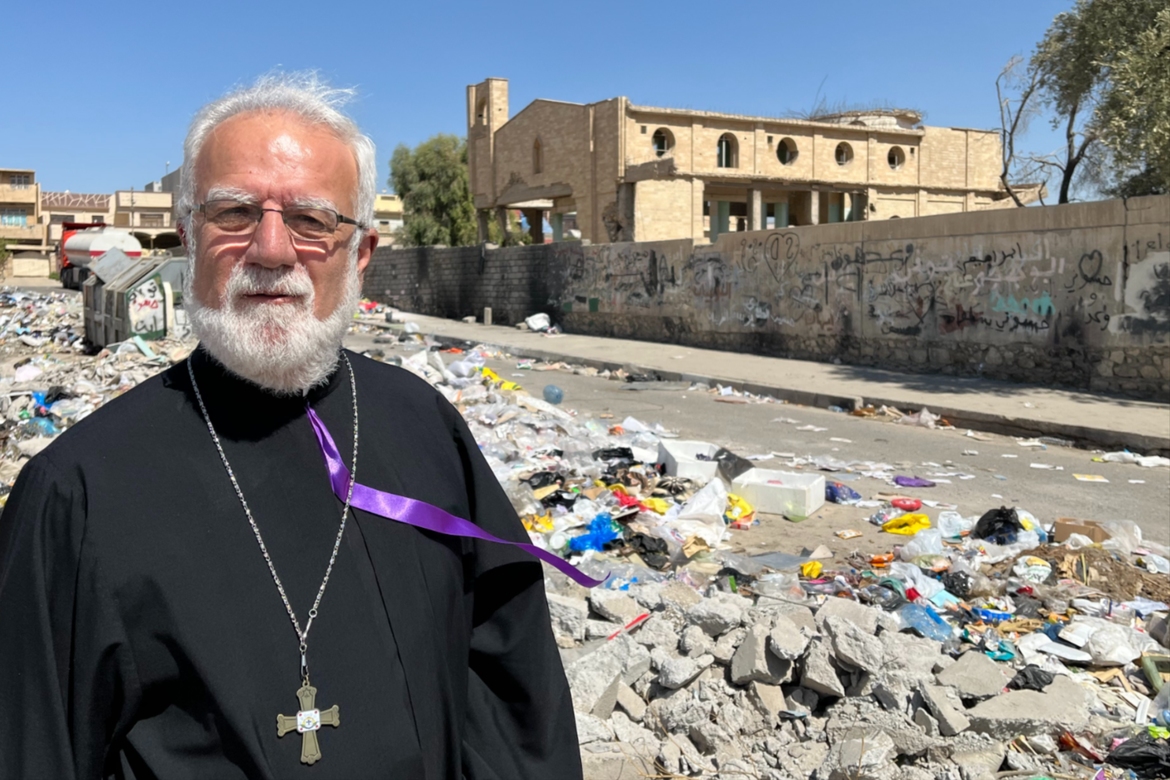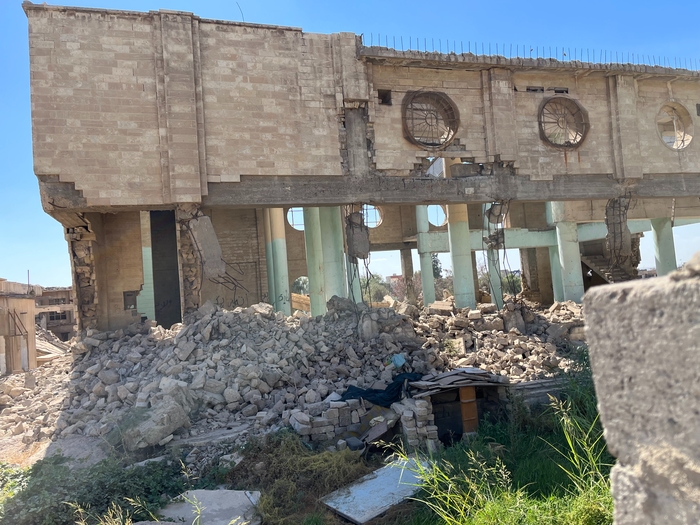10 years since last Christmas in Mosul
Is the the West turning its back on minorities ISIS sought to eradicate and displace?

Emanuel Youkhana in front of the ruins of St. Mary's Church in Mosul, where it has become a garbage dump.
23.12.2024 Stefanusalliansen
More than nine years after the ISIS tragedy in Iraq, the UN and several Western countries have ceased to support civilian humanitarian aid for the survivors. Deeply concerned about the Christian future in Iraq, Emanuel Youkhana of the aid organization Capni expresses his worry.
"Since 2003, Christians have been reduced to a tiny minority in Iraq. Several hundred thousand Yazidis still live in tents nine years after ISIS sought to exterminate them. Who will take care of them?" Youkhana asks. Stefanus Alliance supports Capni.
During a visit to Norway, Youkhana adds:
- ISIS was a man-made catastrophe. A man-made catastrophe has an uncertain outcome, unlike a natural disaster that we can often repair. The tragedies after ISIS will live in people's memories for many decades. Can we expect the Yazidis to forget the mass killings on Sinjar?"
Attacks on Christians in Iraq
Many Christians fled Iraq after the U.S. invasion in 2003, escaping bloody militia attacks, killings, and the ensuing civil war. Other Christians moved north in Iraq. Then, in June 2014, ISIS reached the northern city of Mosul. In August, ISIS invaded the Christian towns on the Nineveh Plain and the Yazidi areas in Sinjar. In the self-governing Kurdish region in northern Iraq, hundreds of thousands of Christians, Yazidis, and others found refuge.
An ISIS ultimatum emptied Mosul of Christians – nearly 40,000 of them – in the summer of 2014. Only a few dozen have returned. Christian life in Mosul is over.
"Can we expect Christians to forget Mosul? The last time the church bells rang in Mosul was Christmas 2013. There is no money to rebuild all the churches in ruins, and no one can use them," says Youkhana.
Today, Christians live in only seven of Iraq's 18 provinces, with active Christian communities in only three of them: two provinces in the Kurdish region, and the third on the Nineveh Plain. Many Christians who fled the cities on the Nineveh Plain have not dared to return. Those who have returned have placed large crosses on their houses and village gates.
Persecution in Waves
The Church in Iraq was founded when the apostle Thomas traveled east and brought the gospel all the way to India. At one point, the church here was the largest in the world. However, Christians in what is now Iraq have never lived under Christian rule – they lived in the Assyrian Empire, the Persian Empire, and since the 600s under various Muslim rulers, points out Youkhana. Persecution and discrimination have come in waves.
When Youkhana studied in Baghdad in the late 1970s, there were large and vibrant Christian communities there. In the church where he was a priest, Mar Odisho, communion could take six hours, and 4-500 children attended summer camps.
His church community – The Assyrian Church of the East – had six active churches in Baghdad. Now, three are closed. Only 1000 people remain around the three open churches.
"Before the U.S. invasion in 2003, there were 1.3 million Christians in Iraq, about 5 percent of a population of 24 million. Today, we are around 200,000 out of 44 million, less than 0.5 percent."
Creating Hope
Youkhana and Capni do everything they can to create hope – with assistance for health, education, jobs, and Christian life for the youth.
"As long as there are Christians in Iraq, there is hope," he says.
After the pandemic, emigration decreased. It has become more challenging to survive in the West. Now, Youkhana hopes that a tragic fire at a wedding in Qaraqosh on the Nineveh Plain in September – with over 150 dead – does not accelerate emigration again. In Iraq, all religious minorities are in a difficult situation.
"We don't demand privilege but equal rights. We Christians are not persecuted now, but we are discriminated against. The school curriculum has no trace of 2000 years of Christian history. Christians, Jews, Yazidis, and Mandaeans are not mentioned. And there has long been an increasing Islamization of people's mindset," says Youkhana, adding:
"Western countries that want to support Iraq must demand that minorities be secured. Iraq has the resources to become a good country again. But one day, the country may be completely emptied of Christians. Western countries must take that into account."

What is left of St. Mary's Church in Mosul after ISIS's rampage.